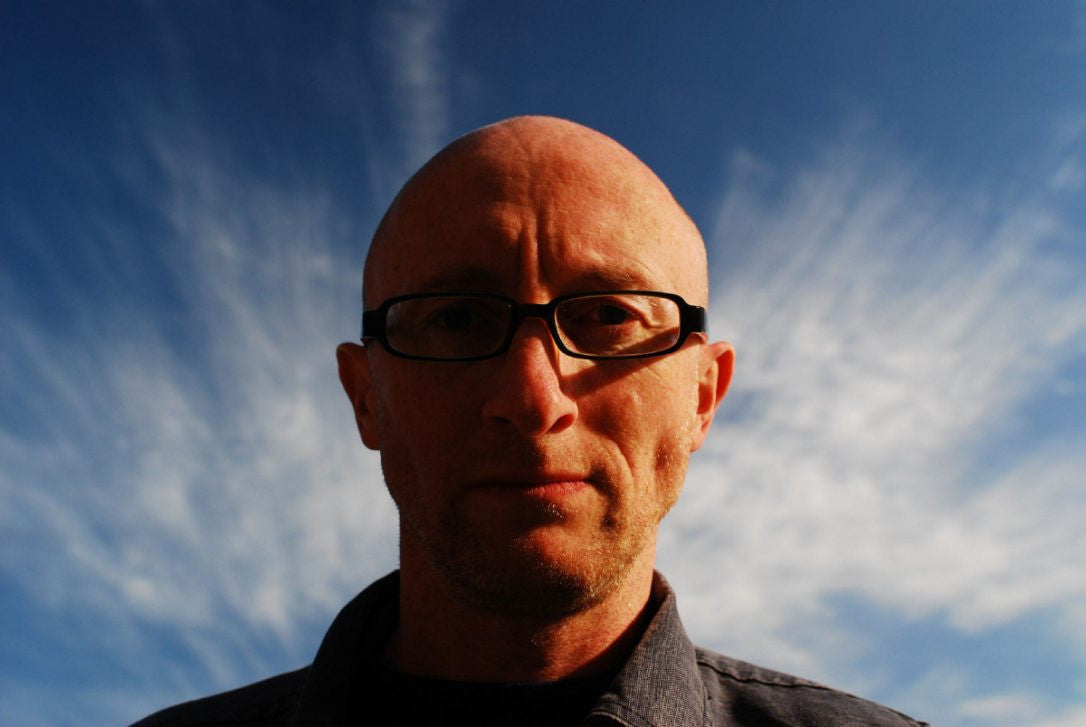
What am I looking for in a Salt book?
by Nicholas Royle

Author photo © Conrad Williams
Or, more accurately, in a book that might become a Salt book? Or, even more accurately, in a manuscript, typescript or computer file that might become a book and could possibly become a Salt book?
Well, for one thing, I’m looking for a level of accuracy or correctness or you might even call it pedantry such as the one you see me striving to attain in these opening sentences. I’m looking for someone who knows how to use language, for someone who has read their work out loud to him- or herself – themself? themselves? – and cut out the mistakes, repetitions and awkward phrasing that will always, always, always be there until they have read it out loud. I’m looking for someone who probably gets halfway to having an authentic and unique voice at first draft stage and then works at it and works at it and works at it until they get it right, until they really do have an authentic and unique voice. (Sometimes it feels easier to say what I’m not looking for. I’m not looking for lazy writing, a careless approach to sentence construction, an inability to use the semicolon correctly.) But of course I’m not only looking for that. (And not only not looking for that.)
Some time last autumn a writer I had never heard of sent me a couple of short stories. Let’s call her V. She didn’t send them to me for Salt, but for Nightjar Press, a small press I run that is dedicated to publishing original short stories in a gothic or uncanny vein. I did what I usually do. I saved the attachments into the submissions folder inside the Nightjar Press folder and promptly forgot about the email – and the submissions – because there were a million other things to be done that had to take priority. V, very patiently, waited until the New Year to write and enquire about her submission, which I immediately dug out and started reading. This is where it gets interesting. Almost as soon as I started reading I realised that this was someone who could write. I don’t mean someone who could write competently – although obviously she could do that, because that should go without saying – I mean someone who, as soon as you start reading their work, you have the sense of being taken by the arm and led away somewhere, even slightly against your will. Maybe you immediately surrender your will, but the point is they’re in charge. And they know where they’re going and they know they want to take you along with them. If you’ve got any sense, you just go. You let them lead you. You find yourself hoping it’s going to be worth getting wherever you’re going. You hope against hope it won’t be a disappointment. And when it’s not, when you get somewhere and it feels like the right place, it’s one of the best feelings going.
That’s what I look for.
How do you do it? How do you write something that takes me – or whoever your reader is – by the arm and makes me – or them – go with you? You have a story that’s worth telling, or a way of telling it that is as compelling or more compelling than the story itself. You have a voice. You have an idea. Maybe you have characters. Maybe you have a sense of place. Maybe you have colour and depth and emotion and tension. You have one or some or all of these things and somehow you make them work together. You make the reader want to keep on reading. (You don’t give them an excuse to stop.) You almost don’t give the reader the choice.
Did I take V’s stories for Nightjar? No, I didn’t, because they weren’t right for Nightjar. Were they right for my list at Salt? Would they sit alongside the work of Alison Moore, Wyl Menmuir, Kerry Hadley-Pryce, David Rose, Alice Thompson, Ian Parkinson, Ron Butlin, Simon Okotie, Kieran Devaney, Neil Campbell, Christopher Prendergast, Stephen McGeagh, Naomi Hamill and others? Absolutely they would. But we were no longer looking for short story collections, were we? Were we? No, not really, but sometimes something comes along that’s so good it makes you break even your own rules.
Vesna Main’s short stories will be published next year.
Discover Nicholas Royle’s latest novel
Nicholas Royle
FIRST NOVEL
ISBN 9780099575245
Paperback
Pages 304pp
An accomplished piece of metafiction by a creative writing professor, about a creative writing professor, writing a novelcomplex, gripping, and extremely enjoyable. Either First Novel is a darkly funny examination of the relative attractions of creative writing courses and public sex in parking lots, or it's a twisted campus novel and possible murder mystery that's not afraid to blend fact with fiction in its exploration of the nature of identity. Paul Kinder, a novelist with one forgotten book to his name, teaches creative writing in a university in England. Either he's researching his next breakthrough novel, or he's killing time having sex in cars. Either eternal life exists, or it doesn't. Either you'll laugh, or you'll cry. Either you'll get it, or you won't.
www.nicholasroyle.com

